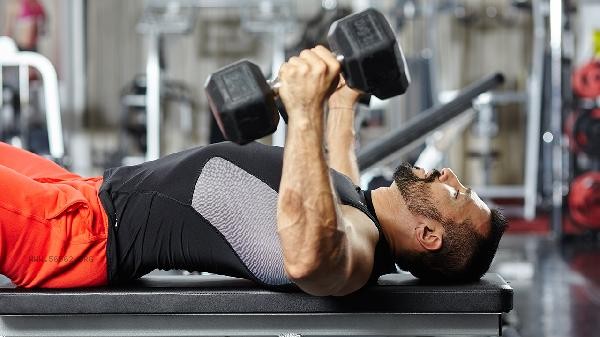Fitness usually takes 30 to 90 minutes per session, and the actual time is influenced by various factors such as exercise type, training objectives, physical fitness level, recovery needs, and exercise intensity.

1. Type of Exercise
Aerobic exercises such as jogging, swimming, etc. usually need to last for more than 30 minutes to achieve fat burning effects, while strength training is recommended to be controlled within 60 minutes to avoid excessive muscle fatigue. Due to its high efficiency, high-intensity interval training may be shortened to 20-30 minutes per session. Different types of sports have significant differences in time requirements and need to be adjusted according to specific projects.
2. Training Objectives
It is recommended that individuals who aim to lose weight engage in aerobic exercise for 40-60 minutes each time, while those who aim to gain muscle should ensure sufficient rest time for each movement during strength training. Shaping training may require more detailed movement arrangements, with a total duration often exceeding 60 minutes. rehabilitation training is usually controlled for 30-45 minutes per session.
3. Physical fitness level
Beginners are recommended to gradually adapt from 20-30 minutes of low-intensity training, while intermediate fitness enthusiasts can extend it to 45-75 minutes. High level athletes may require more than 90 minutes of specialized training. Elderly or frail individuals should shorten their single exercise time and use a small amount of exercise multiple times.

4. Recovery Requirements
After training the large muscle group, longer inter group rest is required, which may prolong the total training time. It is recommended to reserve 10-15 minutes for stretching and relaxation after exercise. Individuals with high training frequency should shorten the duration of each session appropriately to avoid cumulative fatigue. When there is insufficient sleep or high stress, the duration of single exercise should also be reduced.
5. Exercise intensity
Low intensity steady-state aerobic training may take longer to achieve training results, while high-intensity training usually requires controlling the duration of a single session. The load weight and frequency of strength training will directly affect the total training duration. The ratio of exercise to rest time in interval training is also a key factor affecting the duration of a single session.

The duration of fitness needs to be flexibly adjusted according to individual circumstances. It is recommended that beginners develop a training plan under the guidance of a professional coach. Before and after exercise, it is important to warm up and relax adequately, and pay attention to replenishing fluids and nutrients. Regularly evaluate the training effectiveness and adjust the duration and intensity in a timely manner to avoid injuries caused by overtraining. Maintaining regular exercise habits is more important than a single training session, and accumulating 150 minutes of moderate intensity exercise per week can yield health benefits.







Comments (0)
Leave a Comment
No comments yet
Be the first to share your thoughts!